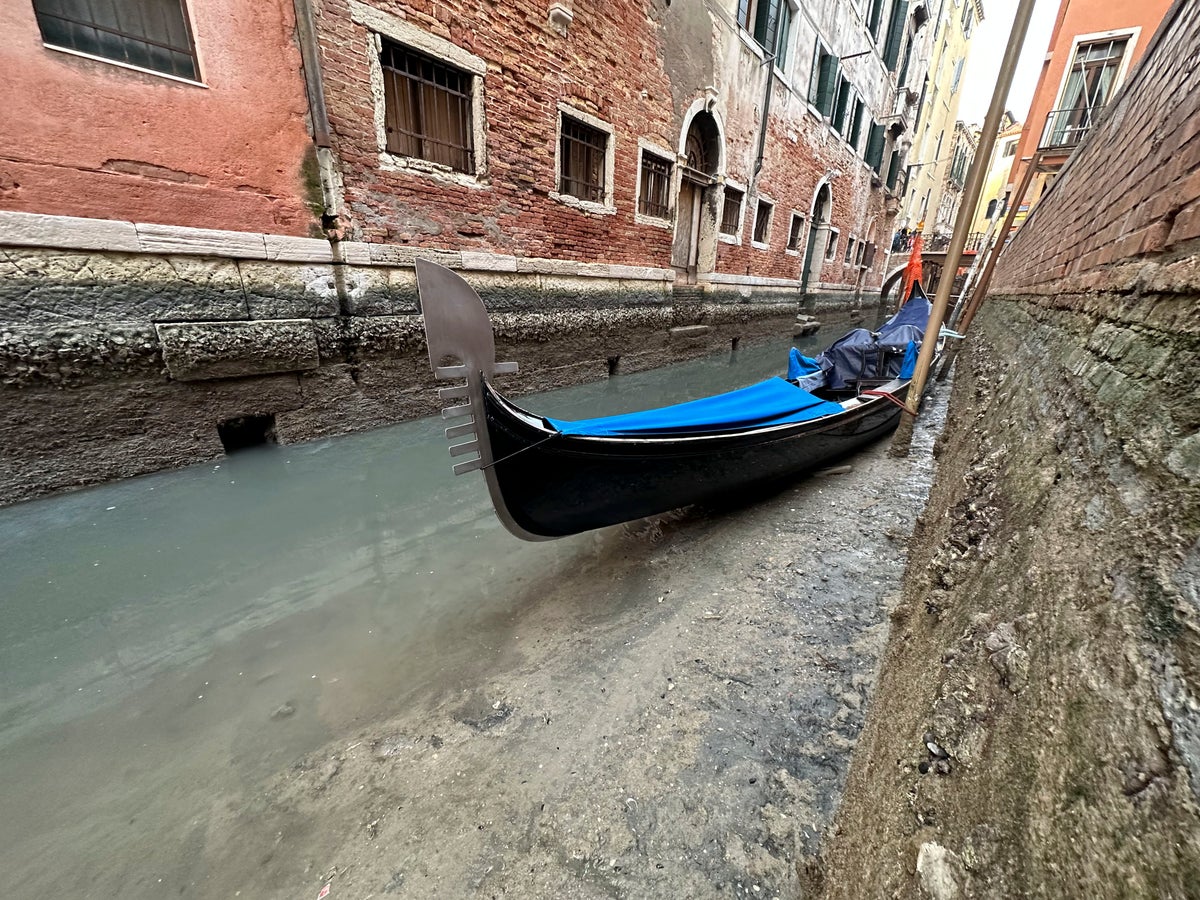
Some of Venice’s smaller canals have practically dried up due a prolonged spell of low tides, frustrating boat crews and bewildering tourists.
The prolonged stretch of ebb tides is linked to a lingering high-pressure weather system over much of Italy, experts say.
Since the canals essentially serve as streets in car-less Venice, the phenomenon of the last days has added to the challenges of every-day life in the lagoon city. Ambulance boats in some cases have had to tie up farther from their destination, forcing medical crews to sometimes hand carry stretchers over long distances since their vessels can't progress up canals reduced to a trickle of water and muck.
For tourists, it meant gondolas couldn't navigate some secondary waterways that run under Venice's many picturesque bridges.
In mid-winter, high atmospheric pressure combined with the lunar cycle produces the ultra-low water levels during ebb tide, noted Jane Da Mosto, an environmental scientist and sustainable development analyst with We Are Here Venice, an environmental advocacy group.
She added that the phenomenon highlights lack of attention to the overdue need for cleaning Venice's inner canal network.
Navigation continued on the wider, main waterways, including the Grand and Giudecca canals.
Separately, the same high pressure system compounded by scarce Alpine snow melt this year has been a factor for the shriveling of lakes and rivers in northern Italy in recent weeks. This month, an isthmus linking the shores of Lake Garda to a small island has re-emerged, delighting visitors who were able to, in effect, walk part-way across the middle of the lake.







